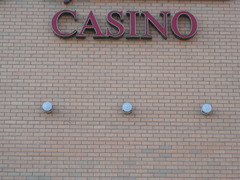Can non-negotiable gambling chips (NGCs) that are given away to favoured punters by casinos be seen as money or money’s worth? By answering that question in the negative, the Court of Appeal saved the gaming industry millions in tax.
 A company that owned a number of casinos conferred NGCs on its best clients free of charge as a promotional tool. Although they could not be swapped for money or used to purchase food, drink or services, they could be staked at the tables and winnings were paid in chips that could be cashed in.
A company that owned a number of casinos conferred NGCs on its best clients free of charge as a promotional tool. Although they could not be swapped for money or used to purchase food, drink or services, they could be staked at the tables and winnings were paid in chips that could be cashed in.
HM Revenue and Customs (HMRC) took the view that it was irrelevant that NGCs were provided gratuitously and that, for the purposes of calculating Gaming Duty under the Finance Act 1997, they should be treated as having a real monetary value equivalent to their face value. HMRC’s argument prevailed before the First-tier Tribunal, but that decision was subsequently reversed by the Upper Tribunal.
In dismissing HMRC’s challenge to the latter ruling, the Court found that NGCs are not the same as cash and have no objective value. In real terms, when the company gave away NGCs to punters, it was allowing them to bet with its own money. Far from NGCs contributing to its profits, the company incurred a potential liability in the event that an NGC was placed as a winning bet.
It was counter-intuitive in such circumstances to characterise what was essentially an item of the company’s own expenditure as a stake having a value in money or money’s worth within the meaning of the Act. In no sense could the face value of an NGC, or even the value to a player calculated by reference to his chances of winning, feature as a receipt in the company’s accounts.
The Court noted that its decision was of general importance to the gaming industry. The practice of offering NGCs is widespread and £11.1 million in Gaming Duty was at stake in relation to past periods. The favourable tax treatment of NGCs would encourage casinos to offer them in place of other types of rewards or inducements.

